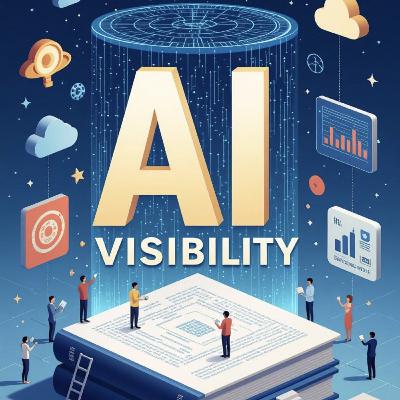Beyond the Hype: 5 Surprising Truths About AI in Creative Work and Development
Description
Introduction: The Reality of the AI Revolution
The common narrative around AI is a simple one: it's a magic button. Depending on who you ask, that button will either replace all creative jobs or generate flawless products instantly. But as we move through 2025, the reality emerging from the workshops of developers and the studios of designers is far more interesting, nuanced, and frankly, surprising.
This article distills five of the most impactful and counter-intuitive truths about how AI is really changing creative work and development. Forget the hype—these are the practical takeaways, based on the latest tools and expert insights, that define the new landscape.
--------------------------------------------------------------------------------
1. Your New AI Partner Isn't a Coder, It's a "Vibe" Translator
A revolutionary workflow known as "vibe coding" is fundamentally changing how applications are built. This practice involves using natural language prompts to guide an AI assistant, which then generates the functional code required to bring an idea to life.
This marks a fundamental shift in the human's role. The developer’s focus moves from being an "architect, implementer, and debugger" who writes code line-by-line to a "prompter, guide, and tester" who concentrates on the desired outcome. This approach is making app development more accessible to a new wave of creators with limited programming experience, powered by tools like lovable.dev and Firebase Studio. However, this doesn't remove the human from the process; it repositions them as a critical reviewer and director.
In this model, AI tools act as a powerful collaborator or "pair programmer." The user guides the AI but then reviews, tests, and understands the code it generates, taking full ownership of the final product.
--------------------------------------------------------------------------------
2. AI-Generated Images Are No Longer Flat and Final
Most people think of AI-generated images as static outputs, like a JPG or PNG file—impressive but ultimately unchangeable. That paradigm is being fundamentally challenged. Canva has introduced a new foundational design model that generates images with fully editable layers and objects.
This is a massive leap forward. As described in reports from CNET and Entrepreneur Loop, it solves a critical pain point where designers had to choose between using a flat, uneditable AI image or manually creating every visual element from scratch. Now, users can generate a complex scene and then select and manipulate individual components—like changing the color of a specific object or moving a background element—using familiar editing tools. As CNET notes, this is a "massive quality of life upgrade," as you won't have to entirely regenerate an image to fix one small error.
As Canva's Global Head of Product, Robert Kawalsky, explained, previous methods were limiting:
"Omni models have taken that a step further, where you’re able to edit those flat images with a lot of sophistication through prompting. But the tools have made you prompt your way to the final result, which, for a visual medium, is challenging".
--------------------------------------------------------------------------------
3. Professional-Grade Creative Tools Are Suddenly Going Free
In a seismic shift for the creative software industry, Canva has made its entire Affinity suite completely free. Affinity, a professional-grade collection of tools for photo editing, vector design, and page layout, was previously positioned as a direct competitor to Adobe's products, offered at a popular "buy-it-once" price point.





